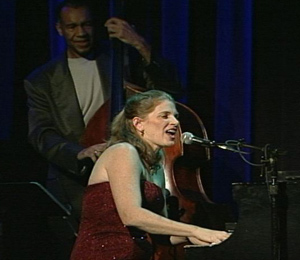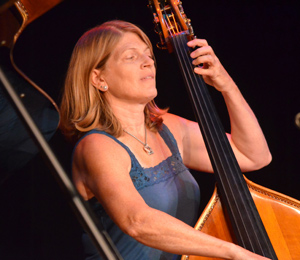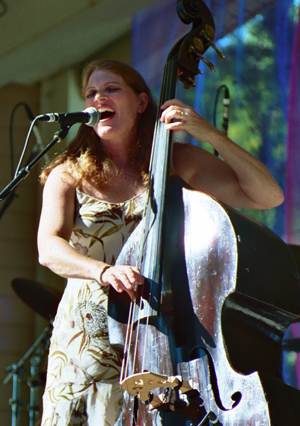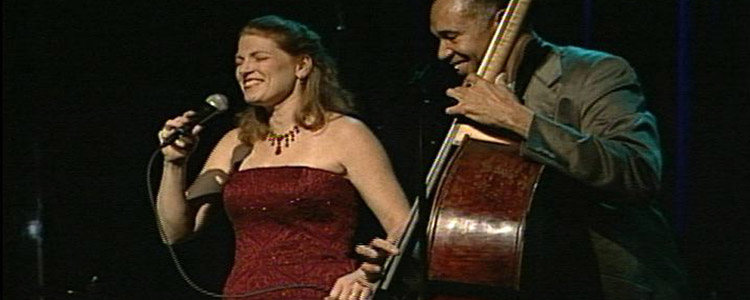Biography
No Auditions Required
 I have loved music all my life. My father was a wildly avid big band listener with thousands of records in his cherished collection, and my mother adored Broadway show tunes, humming them all around the house. Music was played in our house most hours of the day, Glenn Miller blasting out of the new and very hip “hi-fi system” that my father was so proud of. I took the standard childhood piano lessons, enthusiastically pounding out etudes and Hanon exercises, but for some unknown (and deeply regretted) reason, I balked when my father suggested learning some jazz chords.
I have loved music all my life. My father was a wildly avid big band listener with thousands of records in his cherished collection, and my mother adored Broadway show tunes, humming them all around the house. Music was played in our house most hours of the day, Glenn Miller blasting out of the new and very hip “hi-fi system” that my father was so proud of. I took the standard childhood piano lessons, enthusiastically pounding out etudes and Hanon exercises, but for some unknown (and deeply regretted) reason, I balked when my father suggested learning some jazz chords.
It wasn’t until my mid-twenties and well into an engineering career that I realized I could, in fact, probably, learn to play something beyond “Maple Leaf Rag” on the piano. Inspired by the years of big band listening in my youth, I took up the trumpet and joined a community band in Minnesota. (Helpful note: it is true that it gets so cold there you can get a trumpet mouthpiece frozen to your tongue.)  I still remember the thrill and complete terror I felt during my first rehearsal ever playing with a group, the Roseville Community Concert Band (no auditions required).
I still remember the thrill and complete terror I felt during my first rehearsal ever playing with a group, the Roseville Community Concert Band (no auditions required).
Music Reeled Me In
Music reeled me in like a fisherman, and eventually I left engineering to study jazz performance, despite my father’s dire and valid warning that I was “on the road to financial ruin!” In the year 2000, after more than a decade of alternating college music classes with engineering work to pay the bills, I finally earned my Bachelor of Music degree from Cornish College of the Arts in Seattle.
For me, the biggest challenge of playing music is this: letting go of all the “shoulds” and rules and “how-to” and the internal voice of constant critique, the hours and years of rote practice, and simply finding the music in the deepest part of the soul – then having the courage (and technique) to express it out loud.
 A genuine artist is required to access their innermost spirit and dare to pull it forth into the view of an audience, because if we do not use the essence of that spirit, our art is nothing more than a display of technical achievement for the sake of entertaining or impressing someone outside of ourselves. The artist must have the technical proficiency to express their heart, and must be able to let that technique take a back seat and serve as only a supporting role to the music itself.
A genuine artist is required to access their innermost spirit and dare to pull it forth into the view of an audience, because if we do not use the essence of that spirit, our art is nothing more than a display of technical achievement for the sake of entertaining or impressing someone outside of ourselves. The artist must have the technical proficiency to express their heart, and must be able to let that technique take a back seat and serve as only a supporting role to the music itself.
A Reward Worth Pursuing
And whether you’re on stage in front of 1,000 people or in your living room playing duets with a friend, the reward for meeting that challenge is this: a deeply fulfilling, wordless connection to the music, to oneself, one’s fellow musicians, and to the listeners that transcends the minutiae of the day to bring a fullness, a sharp and clear amplification of the whole range of human emotions, shared with others…a reward well worth pursuing.
